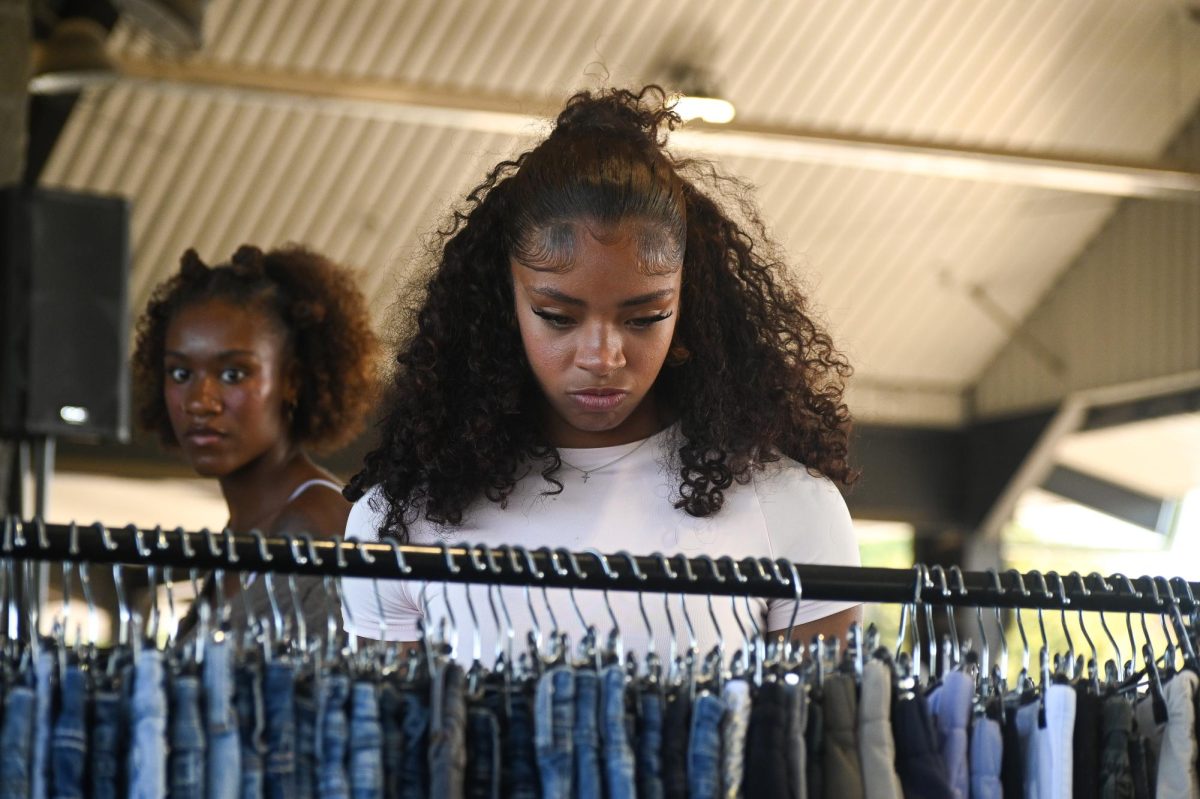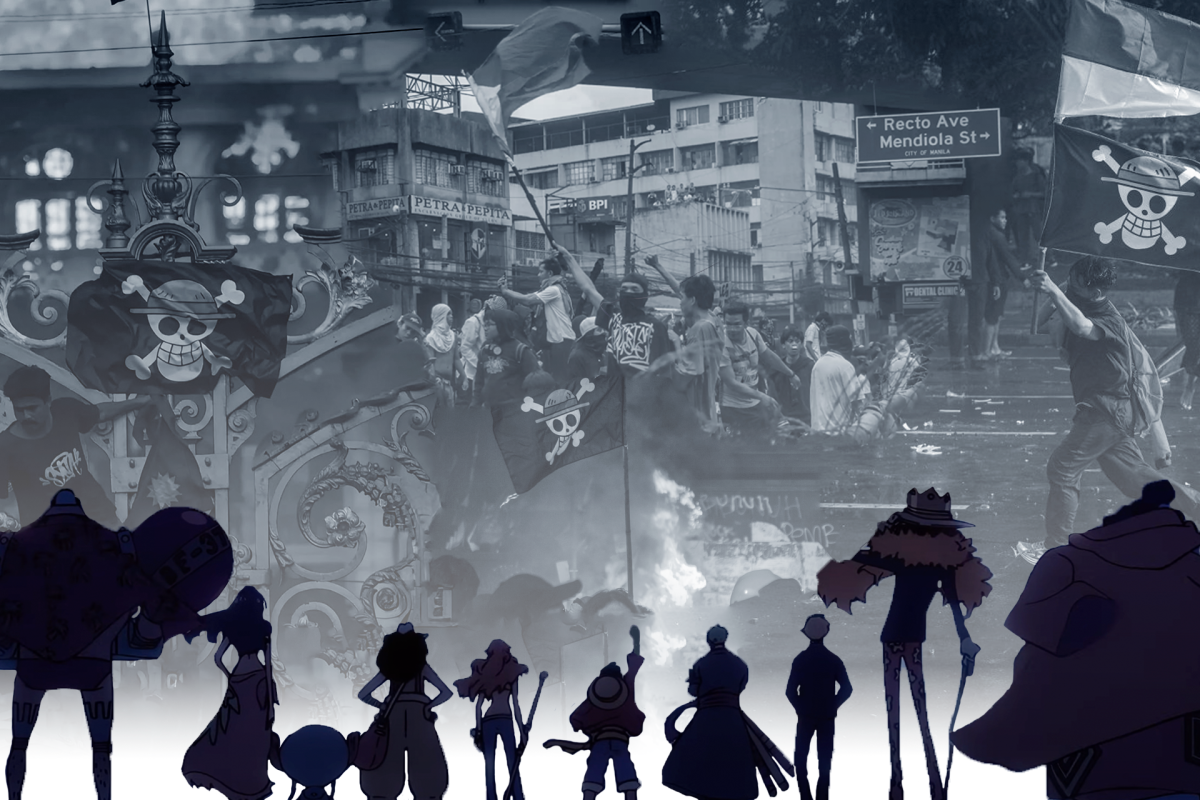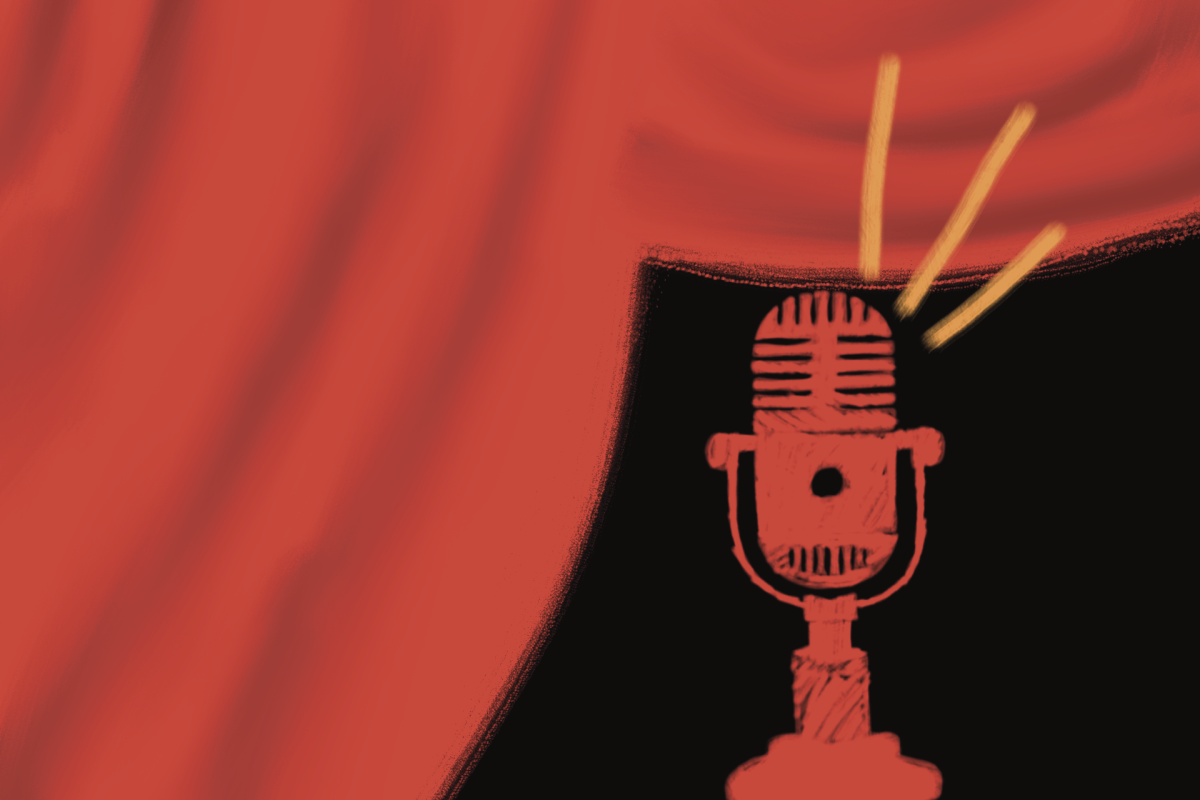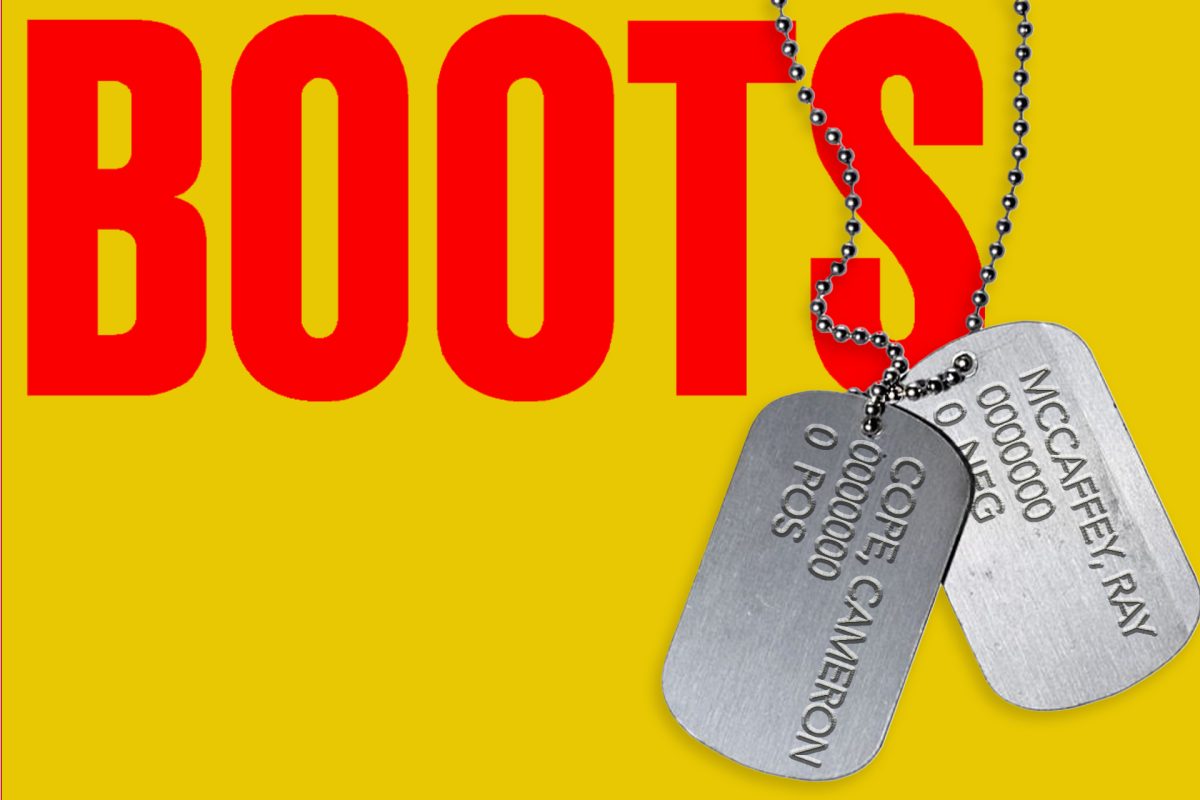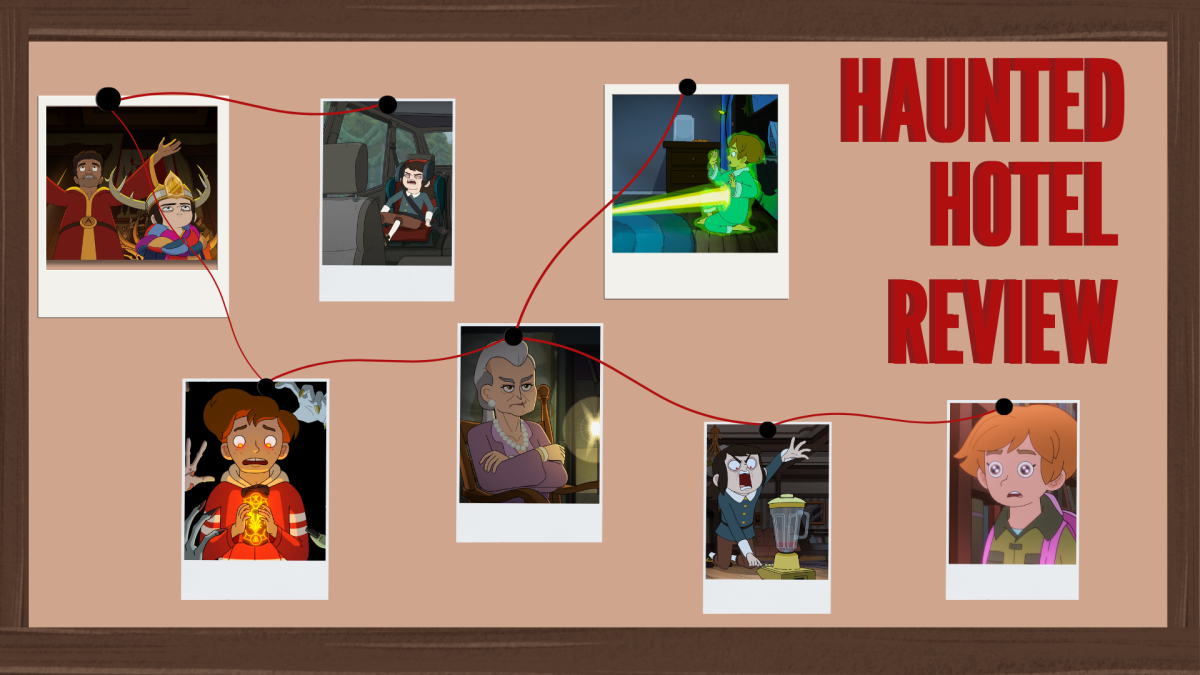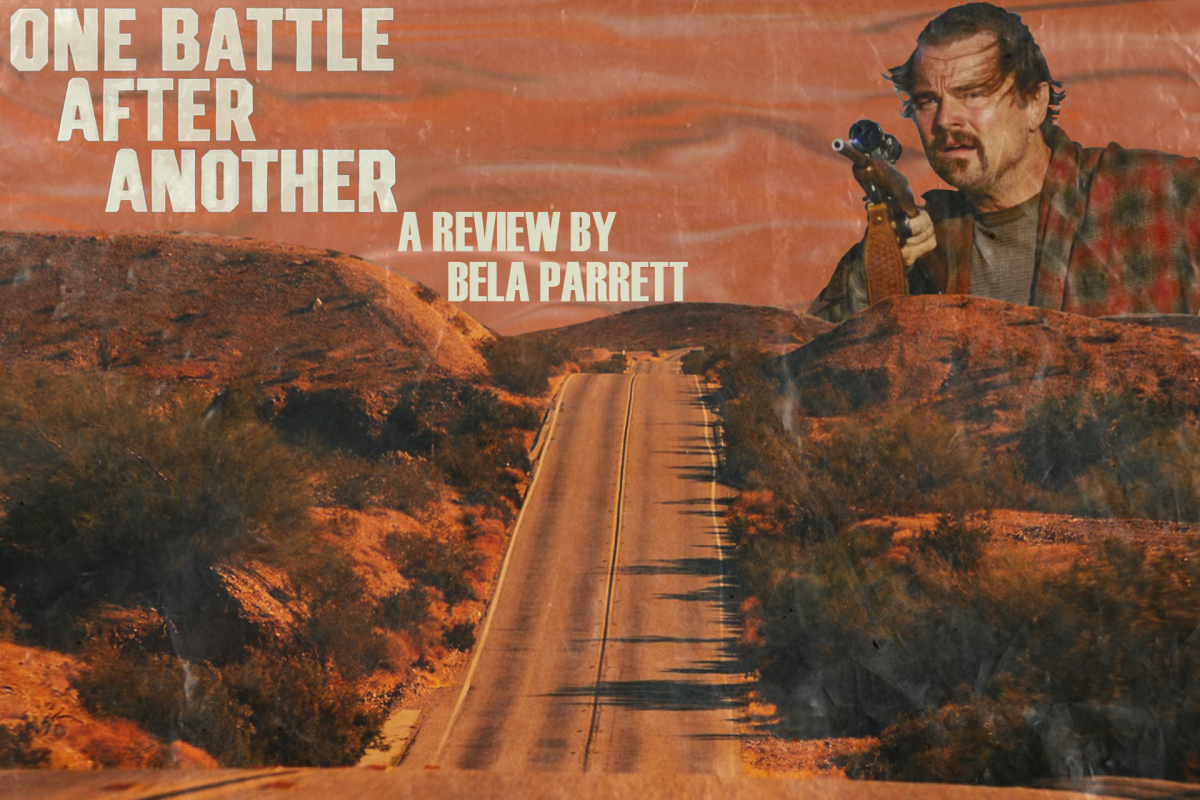Behind all of the campiness, “Please Baby Please” is a bizarre trip about gender expression, sexuality and queer people’s place in society.
“Suze and I are in the middle of something here, and if I knew what it was, I’d tell you, but I don’t.” Arthur tells his father over the phone during the third act of “Please Baby Please.” I have never related to a character in a movie more than in that moment.
I didn’t know what to expect when I sat down for Amanda Kramer’s 2022 release, “Please Baby Please,” the final movie showing of Ragtag Cinema’s 2023 PrideFest — following Gregg Araki’s Totally F***ed Up and Lukas Moodysson’s Show Me Love. The only information I was given was the following: the staff at Ragtag had debated putting this in their High Frequencies series, where they recommend the viewer be high. With that, I sat down and prepared myself for the unknown.
The movie is weird. The audience follows Suze (Andrea Riseborough) and Arthur (Harry Melling), who have their lives upended after witnessing a murder by a gang of greasers, the “Young Gents,” in 1950s Manhattan.
It’s also a lot more than that: it’s a musical, it’s an arthouse film and it’s camp. It’s genuinely indescribable. The film is very clearly inspired by the works of John Waters. The signature over-the-top acting, saccharine colors, dry humor and a dark plot are not hard to find.
The movie reads as an almost Lynchian version of a 1950s soundstage musical. The shot composition is stoic and dreamlike, the sets are minimal and monotone and Giulio Carmassi and Bryan Scary’s score is equally romantic and unsettling. Props look like they are made with two dollars and a dream; besides the leads, the casting budget is minimal to say the least.
Tonal inconsistencies run amuck. Riseborough and Demi Moore — who plays Maureen — both give over-the-top and wacky performances. Melling and Karl Glusman, who plays Teddy, the head of the Young Gents, give much more understated performances. It’s impossible to explain the absurdity of Cole Escola’s character Billy and his rendition of The Skyliner’s “Since I Don’t Have You”.
The film is not bad or stupid though — far from it. Yes, there are erotic crotch shots, but there are also nuanced approaches to gender expression, sexuality and queerness.
One of the first sequences of dialogue in the film is a captivating discussion about what it means to be a man versus what it means to be a woman.
“He refuses to fight. He refuses to be a man,” Arthur’s friends said.
“I won’t be terrorized into acting like a savage just because I was born male.” Arthur said in response. “And I don’t want to be rewarded for it either,”
Stereotypical gender roles in marriage and society are picked apart and analyzed throughout “Please Baby Please.” Suze is violent. Her friends tell her she sounds “orgiastic” about the murder. She says she wants to be “Stanley Kowalski,” the brutal character from Tennessee Williams’ “A Streetcar Named Desire.”
Suze wants to be the stereotypical man of the 1950s. Arthur is not conforming to Suze’s version of masculinity. He is meek and instead rejects his masculinity constantly. Within 90 minutes, we see these characters transform into the roles they want to play. Suze’s clothing becomes more stereotypically masculine and her long, unkempt hair becomes pulled back and hidden. Arthur’s self expression becomes more stereotypically feminine, wearing scarves and sequins.
At the beginning of the film, Suze wants to be at Arthur’s feet. In the end, Arthur finds himself at hers.
Riseborough and Melling’s performances also help sell this transformation. Riseborough is loud, boisterous and over-the-top. There is a clear longing for control in her eyes. She contorts her face into shapes that made me actively cackle in the theater.
Melling’s performance is mostly quiet and understated. There are no exaggerated faces here, just longing emotional gazes. Suze explores her gender expression and Arthur explores his sexuality.
Teddy is a hot, gay greaser whom Arthur becomes immediately entranced with. Teddy, likewise, has a growing obsession with Arthur. Their love story is definitely questionable and a little toxic as it comes across as a twisted obsession on both sides.
Another dancing gang from 1950s Manhattan that came to mind when I watched “Please Baby Please” were the Jets from “West Side Story.” Where the Jets are all subtly queer presenting, and one of the Jets — named Anybodys — is “just a tomboy,” the Young Gents are explicitly queer. Our first introduction to the Young Gents involves the group grinding and erotically dancing. The next time we see them, Teddy is giving one of them a handjob in the bathroom. Teddy tells Arthur that the Young Gents are people “born in the symptom of a sickness in society.”
The Young Gents are one representation of the queer community. “Please Baby Please” uses their’ violence to represent a battle some queer people may feel within themselves. Feeding into this violence and hiding their queerness, they isolate themselves more, becoming a feared gang.
“Please Baby Please” is not without its faults, though. The third act becomes more focused on being an arthouse film than maintaining the discussions started at the beginning of the movie. Discussions about gender expressions and sexuality are replaced with dance sequences and flashes of light.
Speaking of dance sequences, other abstract moments occur that don’t add much to the movie and feel like they are just there to add to the weirder elements of the movie. Suze was in multiple fantasy sequences that alluded to a sexual context — including one involving a steam iron — and they just end, lacking substance.
The movie also doesn’t seem to know what to do with Escola or Moore. Moore has one scene in the movie that provides some growth to Suze as a character, but besides that, she exists just for a zany performance. It is difficult to understand the purpose of Escola’s character and his song. The characters were entertaining in the moment but took away from substantially more interesting plot points.
“Please Baby Please” is not necessarily a movie worth seeing twice, but it is a movie worthy of a first watch. I don’t know how much the movie left me with, but it did leave me with this:
Humans change; It’s inevitable. Who we become is unknown.
Edited by Annie Goldman | [email protected]
Copy Edited by Bella Zielinski and Sterling Sewell | [email protected] Edited by Sophie Rentschler | [email protected]




